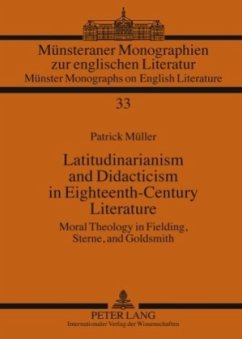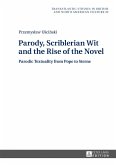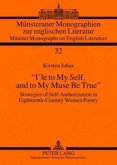The relationship between Latitudinarian moral theology and eighteenth-century literature has been much debated among scholars. However, this issue can only be tackled if the exact objectives of the Latitudinarians' moral theology are clearly delineated. In doing so, Patrick Müller unveils the intricate connection between the didactic bias of Latitudinarianism and the resurgent interest in didactic literary genres in the first half of the eighteenth century. His study sheds new light on the complex and contradictory reception of the Latitudinarians' controversial theses in the work of three of the major eighteenth-century novelists: Henry Fielding, Laurence Sterne, and Oliver Goldsmith.
Bitte wählen Sie Ihr Anliegen aus.
Rechnungen
Retourenschein anfordern
Bestellstatus
Storno








